The Crown Season 6 Pt.1 Review- A phenomenal Elizabeth Debicki keeps an unsteady season afloat
As Princess Diana, Elizabeth Debicki’s anguished, alluring performance holds the new season together
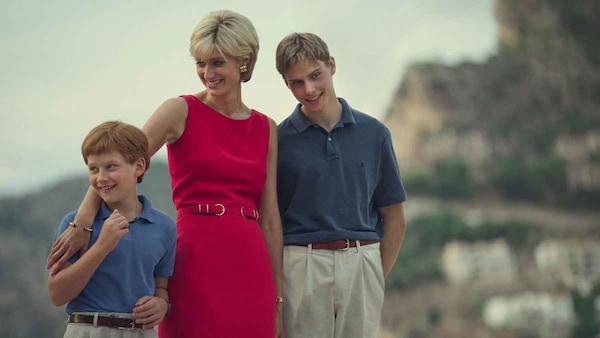
Last Updated: 08.00 PM, Jul 13, 2024
Story: The first part of The Crown’s sixth and final season swoops onto the events of 1997 –the final year of Princess Diana’s life. The narrative traces her romance with Dodi and encompasses her tragic death in the fateful car crash.
Review: The new season opens on a gut-wrenching note. We are hurled right into the fateful night of 31st August, 1997, as the car whisking Princess Diana and her lover Dodi, fatally skids off the Parisian tunnel, killing both. The moment is not shown. We only get to see the car race past the paparazzi, hear the squeal of brakes and the juddering sound of the crash in the tunnel. With the taut manner in which the sequence is allowed to build, The Crown immediately grabs our attention. The show then hops back in time and picks up roughly from where the previous season left off.
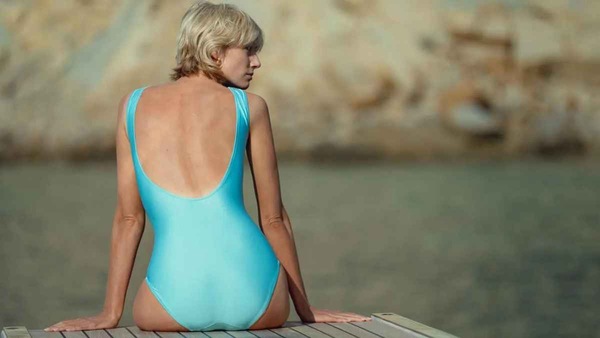
A year has passed since the divorce between Diana and Charles. While she has immersed herself in philanthropic work, propelling a global groundswell of resistance against landmines, Charles tries to gather public legitimacy for Camilla as his partner. The constant tug of war between Charles and Diana, dubbed by Camilla as ‘War of the Waleses’, that preoccupied much of the fifth season, trickles into this outing as well. Charles hosts a party on Camilla’s fiftieth birthday and thereby gradually introduces herself to the royal circles. The Queen, however, initially remains cold and reluctant to accept the changes which go against basic tenets of her faith which she holds dearly. To escape the tabloid attention geared to the Camilla event, Diana takes up the invitation of Mohamed Al-Fayed to holiday with her kids at his yacht in the Mediterranean. Diana’s canniness in giving the paparazzi what they hunger after upstages the public fervour that had been building for Camilla. A frustrated Charles barks at his publicist as to why he has to categorically riffle through every newspaper to look for positive coverage on Camilla, the papers that are otherwise swamped with Diana’s instantly eyeball-grabbing poses.
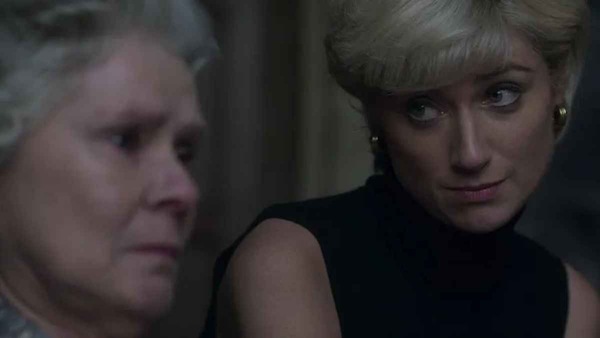
This season vigorously nods to the multi-layered and undeniably fraught relationship Diana shares with the paparazzi. On several occasions she comes close to believing that by feeding them what they want, she can exercise control over her projection. As she develops a blossoming romance with Dodi (Khalid Abdalla), that is overseen and orchestrated by the latter’s father in his desperate desire to earn the affinity with the monarchy, the media scrutiny hardens its glare on her. While the public voyeurism in every little minutiae of her life reaches unbearable and merciless extremes, Diana’s acute loneliness is continually accentuated. Elizabeth Debicki beautifully renders Diana’s fragility and her struggle to keep her mental faculties intact,while she constantly seems to be on the run –“dashing around”, as she herself puts it. The love and emotional sustenance she looks for in her kids movingly comes through in these frames. In an upgrade from last season, Debicki also gets to channel Diana's perky, winsome energy that could light up a room as well as be a detonator.
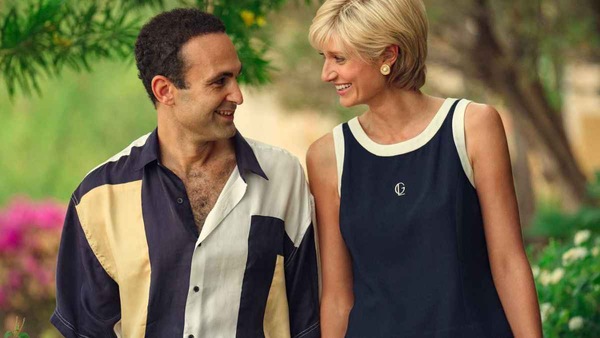
Showrunner and writer Peter Morgan is particularly persistent in pointing out the evolving yet often damaging trajectory of the media, and the lines they can cross convinced their work grants them the leeway for the same. Even one of the (so far released) episodes from season six is titled “Two Photographs”. There’s a duelling nature vested with the photographic projections of Charles and Diana. Charles’ publicist at one point clearly delineates a contrast between Charles’ duty and Diana’s recklessness and therefore how the public support can be tipped in his favour.
This season is especially coloured by our knowledge of all that will eventually transpire. The final moments between Diana and Dodi are especially haunting. Morgan infuses several scenes with this retrospectively viewed poignance. In one scene, celebrity paparazzi are equated with hunters and killers. An ominous undertone sticks to the season, underlying several interactions between Diana and her sons, an unmistakable element ever-present that she might never see them again. Veering further away from the Queen, the season stays close to Diana, while underlining the pervasive anxiety and dread her movements and behaviour have on the royal family, even after she has broken away. But the season’s obsessive martyr-pedestalising of Diana also throws up cause for concern. In one scene, Diana, flirting with Dodi, talks of her forthcoming trip to Bosnia for surveying the impact of landmines. Referring to how the day anyone steps on a mine irrevocably changes their lives, she calls her wedding day as being one such for her, to which a laughing Dodi teases that at least she still has got her legs. Given how much of Diana’s public avatar is built and re-stressed by the show around her charity work, the scene touches several insensitive notes.
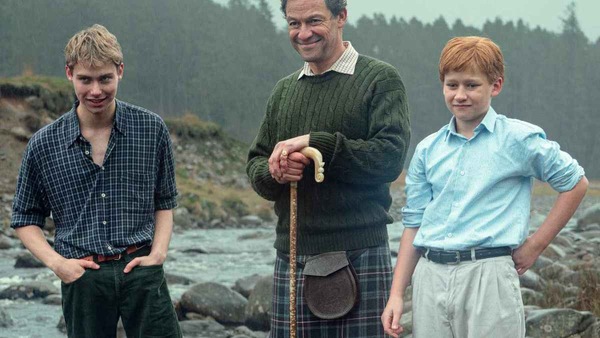
But arguably, one of the clumsiest mistakes the season makes is in culling out a ghost Diana, tasked with gently showing the way forward to Charles and the Queen. These blunt, ineffectively verbose scenes give away a peculiar lack of conviction from the makers, trying to be excessively kind and inoffensive to all sides.
Verdict: The Crown season 6 remains consistently watchable and the sense of melancholy excellently tapped. The storytelling ultimately becomes constricted by the lens of foreboding and despair. The rest of the royal family registers as only a passing afterthought, which I hope the remaining episodes will make up for.
WHERE
TO WATCH
Subscribe to our newsletter for top content, delivered fast.

